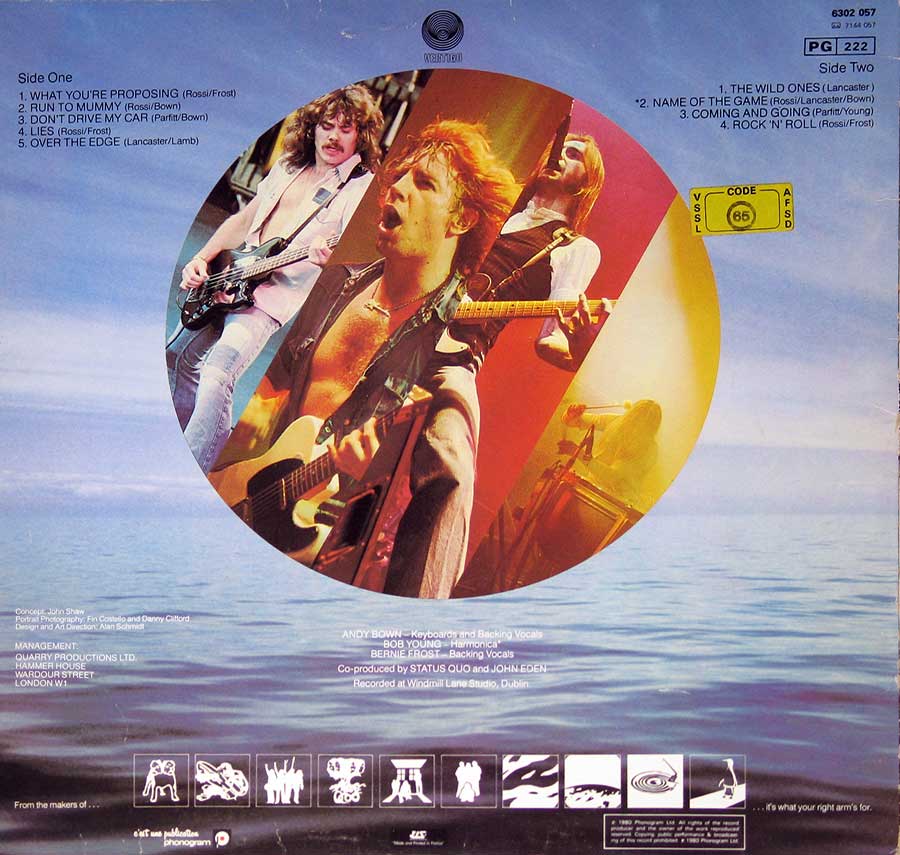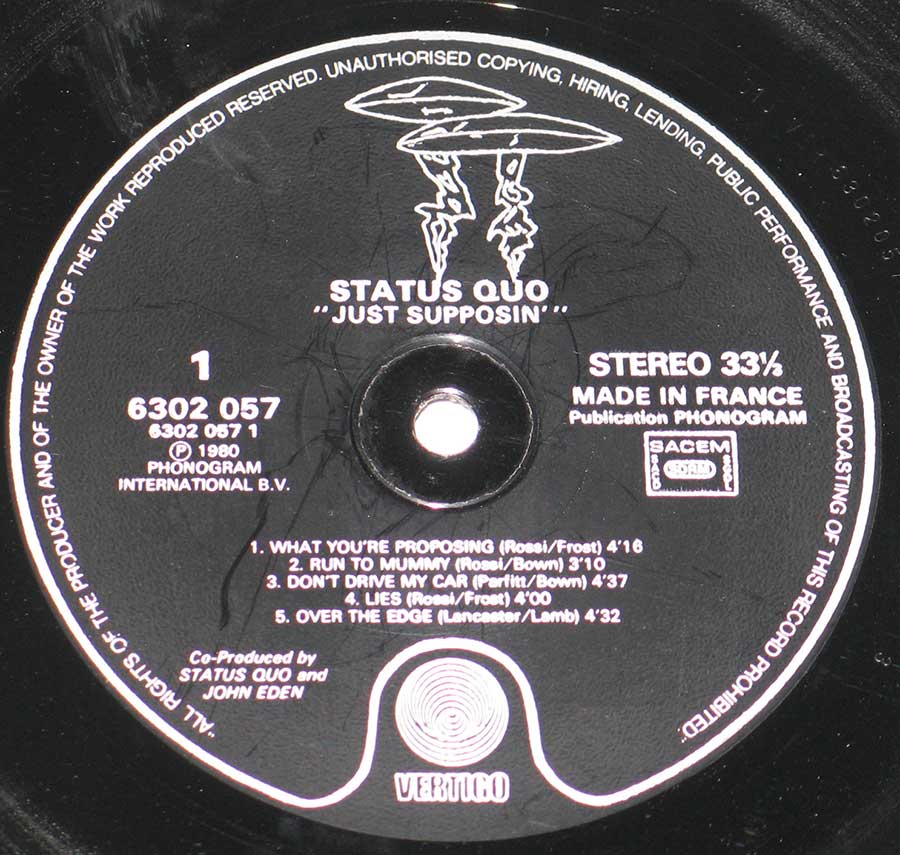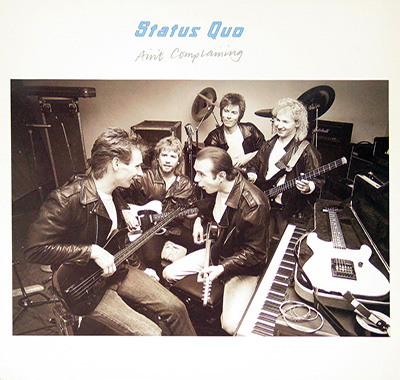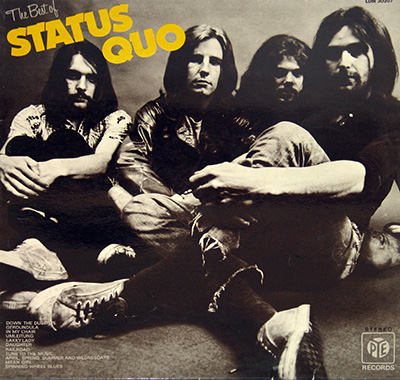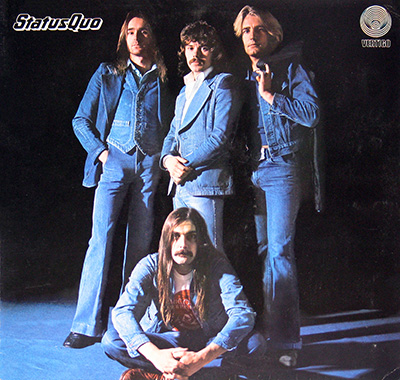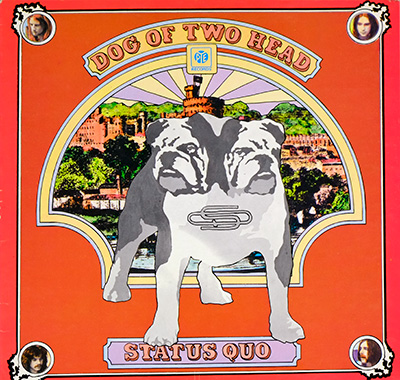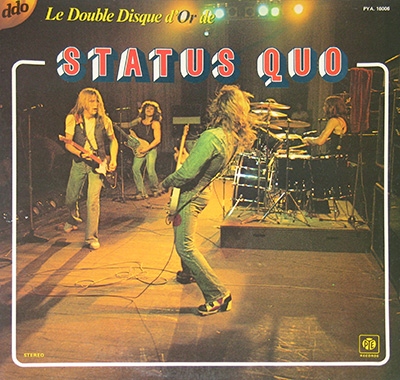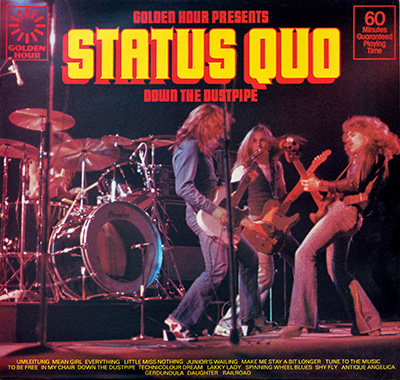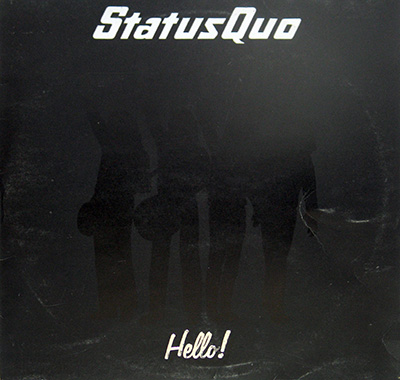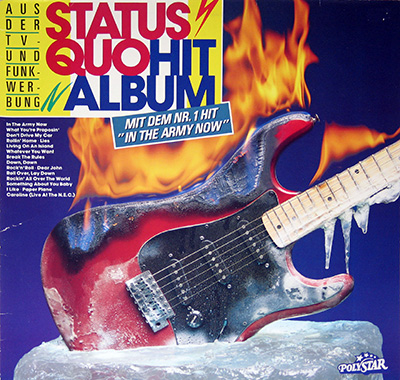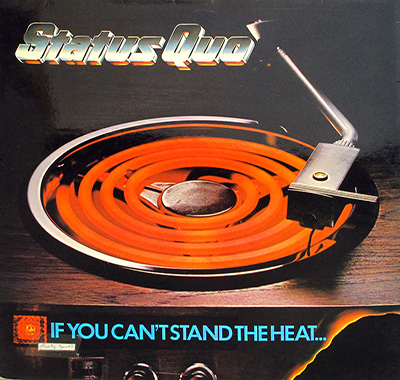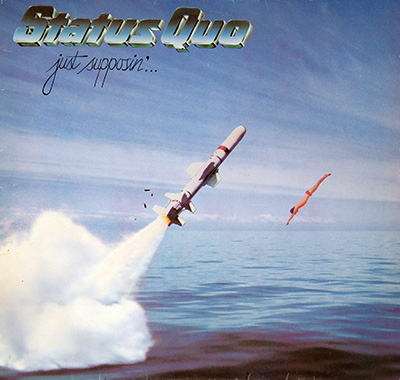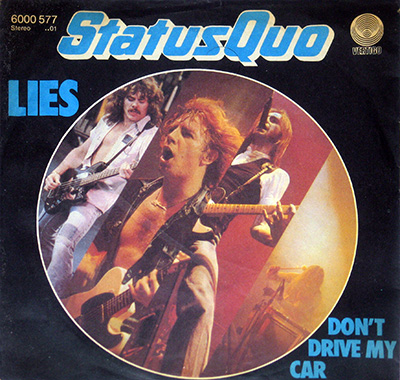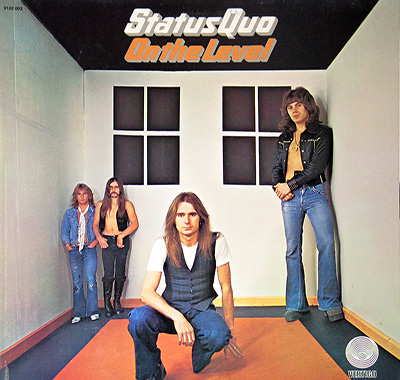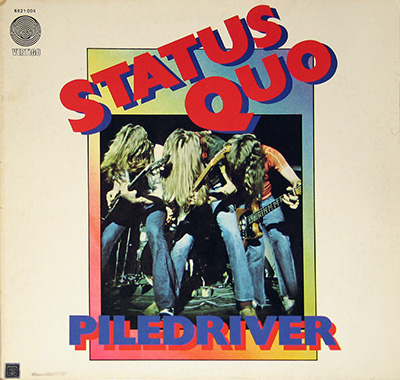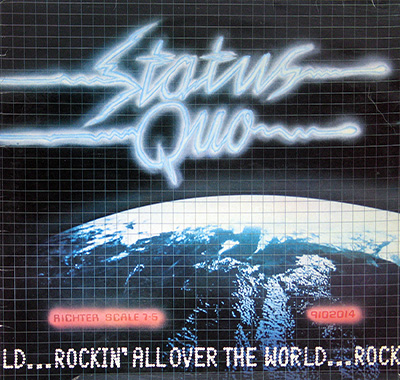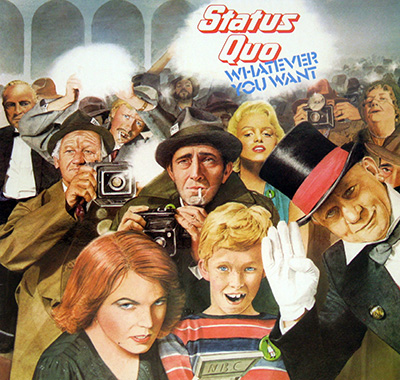STATUS QUO - Just Supposin’: The Relentless Riff-Roaders of 1980 Album Description:
In the waning light of the 1970s, when punk had cracked open the underground and disco still glittered in mainstream airwaves, Status Quo stood like denim-clad pillars of persistence. With "Just Supposin’", their 13th studio album, released in 1980, the London-based band made no apologies. They didn’t pivot, they doubled down — delivering a lean, no-frills rock album amidst a world shifting toward synths, spikes, and sequins.
A Boogie Engine That Wouldn’t Quit
“Just Supposin’” wasn’t a departure. It was a reaffirmation. Status Quo had long been guardians of a stripped-down, shuffle-beat boogie rock, one that critics loved to underestimate and fans devoured in stadiums. While others experimented, Quo refined. Recorded at Windmill Lane Studios in Dublin — a site later immortalized by U2 — this album bristles with the band’s signature economy: tight guitar work, no-nonsense grooves, and working-man lyrics that rode alongside the listener rather than lectured from a pedestal.
The Hit Parade: Songs That Climbed Without Flash
The album's standout track, "What You're Proposing", was an undeniable hit, reaching
No. 2 on the UK Singles Chart
. It’s a swaggering mid-tempo rocker with twin guitars that snarl and snap, its hook so infectious it slipped effortlessly into British radio rotation. "Don't Drive My Car" took a more ironic tone, pairing a laid-back shuffle with lyrics drenched in passive-aggressive wit. Meanwhile, "Run to Mummy" and "Over the Edge" showed the band was still capable of delivering tight, tense rockers that wouldn’t sound out of place in a rougher setlist.
No Synths, No Apologies
What makes “Just Supposin’” so remarkable in hindsight is how utterly unfazed it is by the musical revolutions surrounding it. This was 1980: Joy Division’s “Closer” haunted the post-punk scene, The Human League were laying down blueprints for synthpop, and AC/DC had just released “Back in Black.” But Status Quo didn’t blink. Their refusal to follow trends was either stubborn or heroic depending on who you asked — but there was no mistaking their commitment. The album is analog, earthy, and proudly so.
Rumblings and Riffs: The Controversy of Consistency
Critics of the time were divided. Some accused Status Quo of artistic inertia — an unwillingness to innovate or challenge themselves musically. Others argued, with a growing sense of admiration, that the band had built a sound so distinct and resilient it required no reinvention. The controversy, if it could be called that, revolved around the band’s dedication to a working-class rock ethos in an era obsessed with reinvention.
Influence in Denim and Decibels
If “Just Supposin’” wasn’t a chart-conquering monster, it was a blueprint passed down through bar chords and pub stages across Europe. Bands like Oasis and The Quireboys would cite Status Quo’s grit and no-frills attitude as a formative influence. Even in the more theatrical world of glam and hard rock, acts such as Def Leppard and Thunder acknowledged Quo’s role in preserving the heartbeat of boogie-laced British rock.
The Sound of Staying Power
“Just Supposin’” isn’t an album that changed rock history — but it did something arguably more impressive: it held the line. In the maelstrom of musical fads, Status Quo weathered storms without trading in their ethos. Listening to this album is less like entering a new world and more like returning home — to thundering rhythm guitars, unvarnished vocals, and rock and roll that never left the road.

